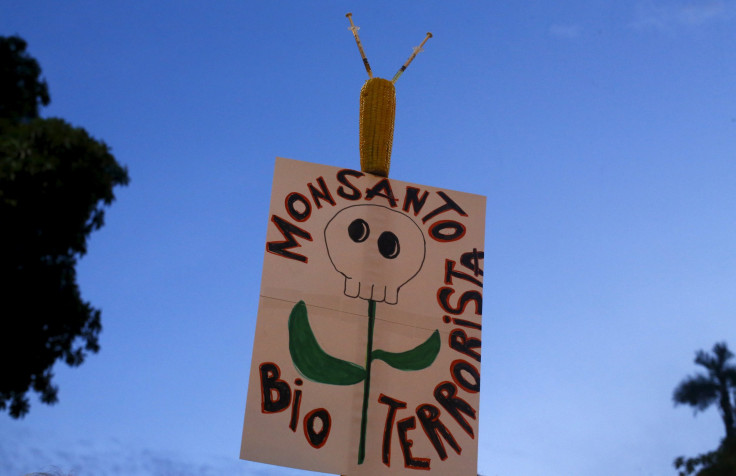Monsanto Liable In Poisoning Farmer: Amid Global Protests Over Toxic Chemicals, French Court Rules Against US Firm

Correction, 5:55 p.m. EDT: The current version of this article has a changed headline and first paragraph in line with a Reuters correction indicating that Monsanto was found “liable,” as opposed to “guilty,” by the court in France.
Monsanto, the world's largest seed company, was found liable this week in the chemical poisoning of a French farmer by a French court. The decision Thursday by an appeals court in Lyon in southeast France upheld a 2012 ruling in which the farmer claimed he suffered neurological problems after working with the U.S. company's Lasso weed killer, Reuters reported.
The court found Monsanto was responsible for the poisoning and ordered the company to "fully compensate" grain grower Paul Francois, who said he suffered memory loss, headaches and stammering after inhaling Monsanto's Lasso in 2004. The farmer said he was happy with the ruling. “David can win against Goliath," he said. "And a giant like Monsanto is not above the law.”
The case is expected to be heard again in France's highest appeal court. "We are speaking about modest sums of money or even nonexistent. He already received indemnities [by insurers], and there is a fundamental rule that says that one does not compensate twice for a loss, if any," the company's lawyer, Jean-Daniel Bretzner, said.
Other Monsanto herbicides also were accused of being harmful. The International Agency for Research on Cancer (IARC), part of the World Health Organization (WHO), said in March that the key ingredient in Monsanto's Roundup, one of the world's top-selling herbicides, was "probably carcinogenic to humans." Monsanto called the findings by a team of international cancer scientists "junk science."
In May, hundreds of protesters participated in the third annual March Against Monsanto event against the U.S. company’s sale of toxic chemicals.
Francois said the agricultural business giant should have provided adequate warnings on the product label. Lasso was a popular herbicide used for decades to control grasses and broadleaf weeds in farm fields. It was outlawed in France in 2007 and has been banned in Canada, Belgium and Britain. It is no longer sold in the United States for commercial reasons, its spokesman in France said.
© Copyright IBTimes 2024. All rights reserved.





















